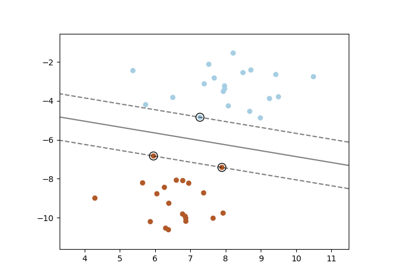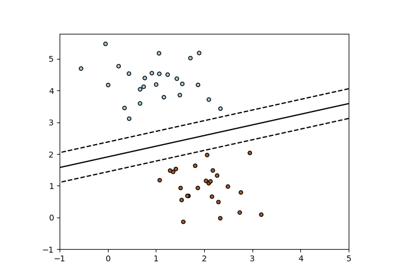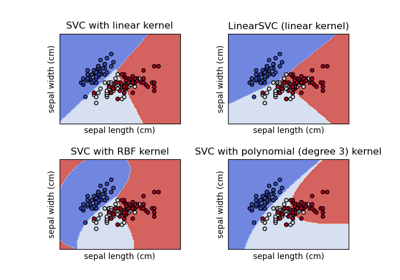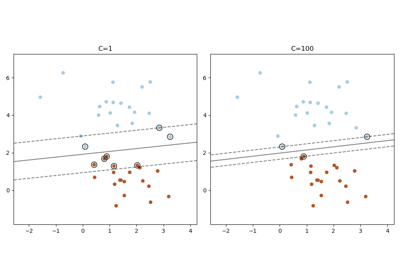注意
前往末尾 下载完整示例代码,或通过JupyterLite或Binder在浏览器中运行此示例
SVM:不平衡类别的分离超平面#
使用SVC为不平衡类别找到最优分离超平面。
我们首先使用普通SVC找到分离平面,然后(虚线)绘制自动纠正不平衡类别的分离超平面。
注意
这个示例也可以通过将SVC(kernel="linear")替换为SGDClassifier(loss="hinge")来工作。将SGDClassifier的loss参数设置为hinge将产生与线性核SVC类似的行为。
例如,可以尝试使用SVC的替代方案
clf = SGDClassifier(n_iter=100, alpha=0.01)
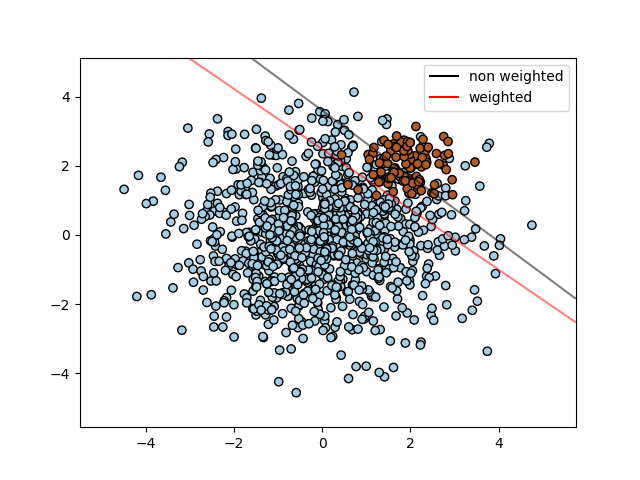
# Authors: The scikit-learn developers
# SPDX-License-Identifier: BSD-3-Clause
import matplotlib.lines as mlines
import matplotlib.pyplot as plt
from sklearn import svm
from sklearn.datasets import make_blobs
from sklearn.inspection import DecisionBoundaryDisplay
# we create two clusters of random points
n_samples_1 = 1000
n_samples_2 = 100
centers = [[0.0, 0.0], [2.0, 2.0]]
clusters_std = [1.5, 0.5]
X, y = make_blobs(
n_samples=[n_samples_1, n_samples_2],
centers=centers,
cluster_std=clusters_std,
random_state=0,
shuffle=False,
)
# fit the model and get the separating hyperplane
clf = svm.SVC(kernel="linear", C=1.0)
clf.fit(X, y)
# fit the model and get the separating hyperplane using weighted classes
wclf = svm.SVC(kernel="linear", class_weight={1: 10})
wclf.fit(X, y)
# plot the samples
plt.scatter(X[:, 0], X[:, 1], c=y, cmap=plt.cm.Paired, edgecolors="k")
# plot the decision functions for both classifiers
ax = plt.gca()
disp = DecisionBoundaryDisplay.from_estimator(
clf,
X,
plot_method="contour",
colors="k",
levels=[0],
alpha=0.5,
linestyles=["-"],
ax=ax,
)
# plot decision boundary and margins for weighted classes
wdisp = DecisionBoundaryDisplay.from_estimator(
wclf,
X,
plot_method="contour",
colors="r",
levels=[0],
alpha=0.5,
linestyles=["-"],
ax=ax,
)
plt.legend(
[
mlines.Line2D([], [], color="k", label="non weighted"),
mlines.Line2D([], [], color="r", label="weighted"),
],
["non weighted", "weighted"],
loc="upper right",
)
plt.show()
脚本总运行时间: (0 分钟 0.157 秒)
相关示例

